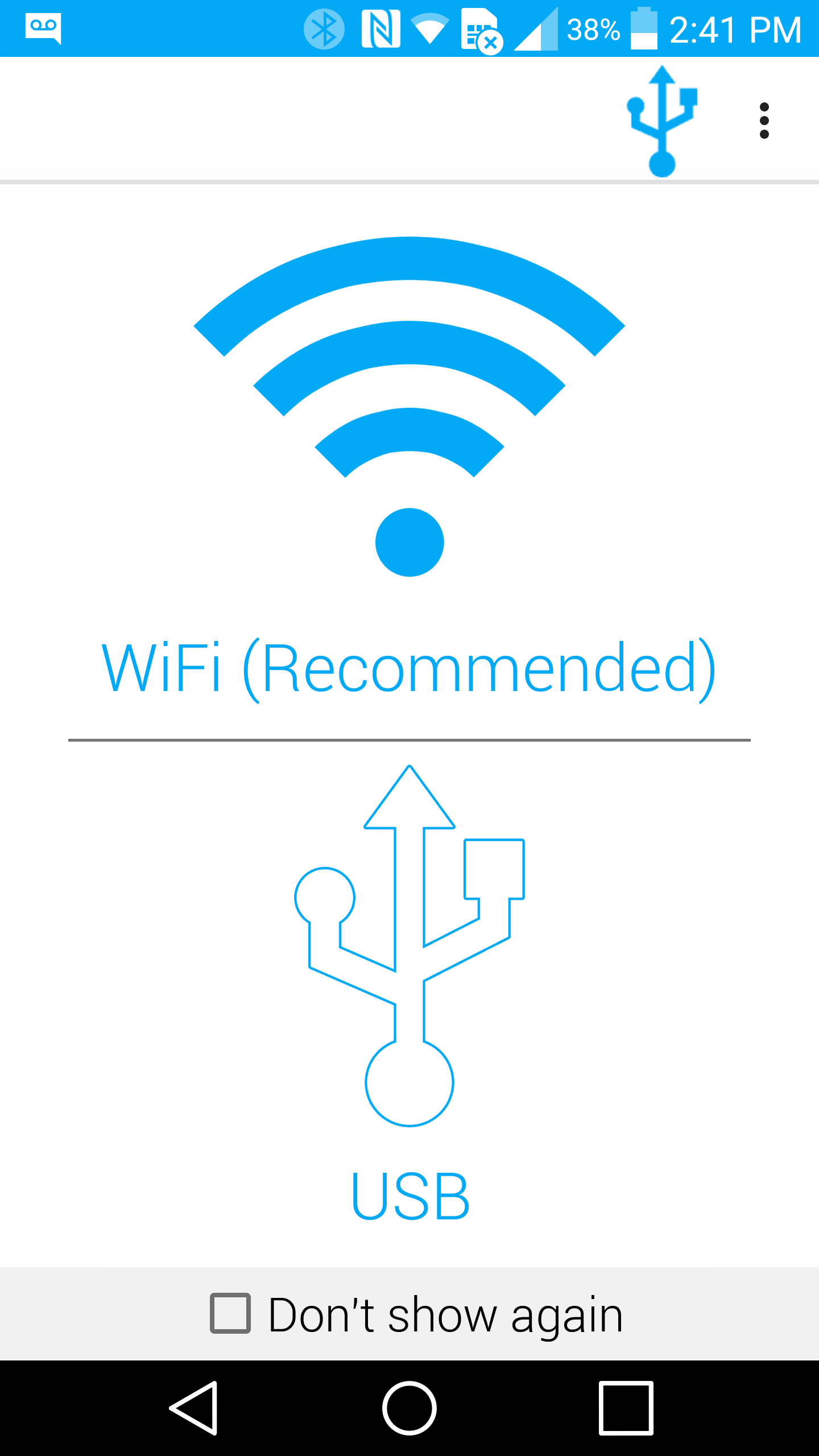Four years with MTP
Submitted by JRT Studio on Tue, 01/19/2016 - 14:57
Media Transfer Protocol or MTP was introduced to Android in Honeycomb (Android 3.0). I remember the first device we had with the new protocol, the Motorola Xoom. Ahh the joy! No, wait, not joy, terror. That's the word. Terror.
Why? Because at the time iSyncr was written to use Universal Mass Storage or UMS when connecting over a USB connection. The introduction of MTP required a major update to iSyncr, which created iSyncr Desktop as a way to transfer iTunes to Android. For several months, we didn't know if iSyncr would make it!
Fast forward to today and MTP is still a primary connection mode that iSyncr uses, but it's not without its problems. Many customers and others we follow have reported problems with MTP including freezes to Windows Explorer on a PC when connecting. We've seen this ourselves in our testing as well as received reports of this occurring from our customers.
MTP, unlike UMS can only execute a single action (delete, write, read) at a time. So iSyncr customers expecting a quick sync to update a few files may be disappointed in the speed they receive when connecting over MTP because of this limitation. Additionally, MTP, unlike UMS cannot transfer metadata changes. For example, if you change a tag in iTunes, but had already synced the song to your device, to see the change on your device, you'd need to delete the file from your device and resync. Other less documented issues include MTP's inability to consistently sync m3u files causing problems for iSyncr customers who want to update their playlists. Now, before I move on and receive emails about inaccuracies in the post, MTP did bring some positive things, mainly that users can no longer can corrupt their storage by disconnecting the device before properly ejecting the storage for safe disconnect. For those of you that long for the olden UMS days to sync we can sync using an SD card reader with this tutorial video.
 Shortly after MTP was released, we packaged iSyncr WiFi along with USB syncing instead of separate products to give customers the option to work around MTP issues. We've even gone so far as to recommend first-time customers to use WiFi syncing over USB simply because of the consistency, reliability and overall experience WiFi syncing brings.
Shortly after MTP was released, we packaged iSyncr WiFi along with USB syncing instead of separate products to give customers the option to work around MTP issues. We've even gone so far as to recommend first-time customers to use WiFi syncing over USB simply because of the consistency, reliability and overall experience WiFi syncing brings.
Marshmallow, (Android 6.0) defaults to the charge connection, unlike its predecessors back to Honeycomb, instead of MTP. This has prompted one indie-developer to createMTP enabler as a way to quickly connect to MTP. To use MTP Enabler, you need to have a rooted device and be running Android 6.0. We're not exactly sure why Google's decided to give charge priority over MTP, it could be some of the problems highlighted above, something else entirely or a mistake that will be changed in Android N (Android 7.0) set to be released at Google I/O this summer.
Why? Because at the time iSyncr was written to use Universal Mass Storage or UMS when connecting over a USB connection. The introduction of MTP required a major update to iSyncr, which created iSyncr Desktop as a way to transfer iTunes to Android. For several months, we didn't know if iSyncr would make it!
Fast forward to today and MTP is still a primary connection mode that iSyncr uses, but it's not without its problems. Many customers and others we follow have reported problems with MTP including freezes to Windows Explorer on a PC when connecting. We've seen this ourselves in our testing as well as received reports of this occurring from our customers.
MTP, unlike UMS can only execute a single action (delete, write, read) at a time. So iSyncr customers expecting a quick sync to update a few files may be disappointed in the speed they receive when connecting over MTP because of this limitation. Additionally, MTP, unlike UMS cannot transfer metadata changes. For example, if you change a tag in iTunes, but had already synced the song to your device, to see the change on your device, you'd need to delete the file from your device and resync. Other less documented issues include MTP's inability to consistently sync m3u files causing problems for iSyncr customers who want to update their playlists. Now, before I move on and receive emails about inaccuracies in the post, MTP did bring some positive things, mainly that users can no longer can corrupt their storage by disconnecting the device before properly ejecting the storage for safe disconnect. For those of you that long for the olden UMS days to sync we can sync using an SD card reader with this tutorial video.

Marshmallow, (Android 6.0) defaults to the charge connection, unlike its predecessors back to Honeycomb, instead of MTP. This has prompted one indie-developer to createMTP enabler as a way to quickly connect to MTP. To use MTP Enabler, you need to have a rooted device and be running Android 6.0. We're not exactly sure why Google's decided to give charge priority over MTP, it could be some of the problems highlighted above, something else entirely or a mistake that will be changed in Android N (Android 7.0) set to be released at Google I/O this summer.
